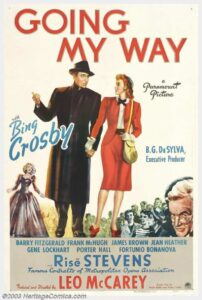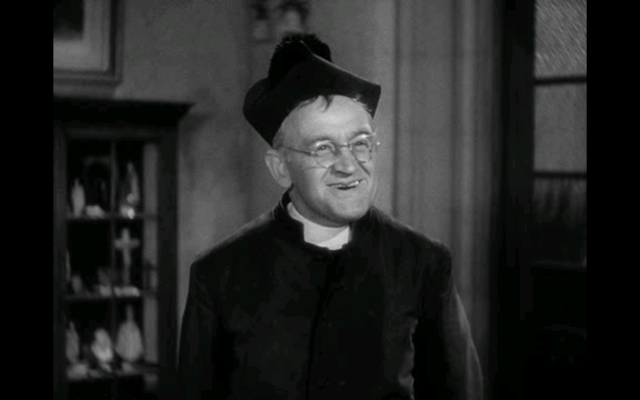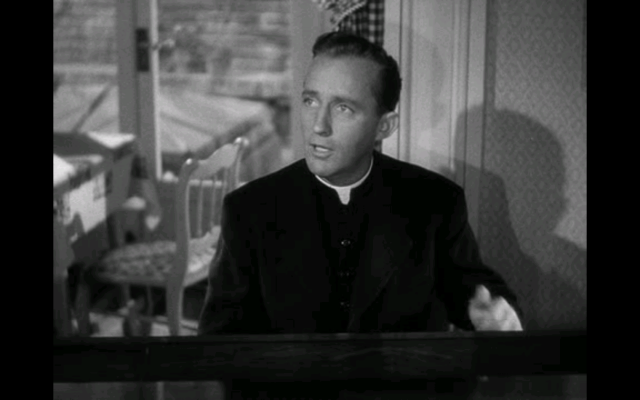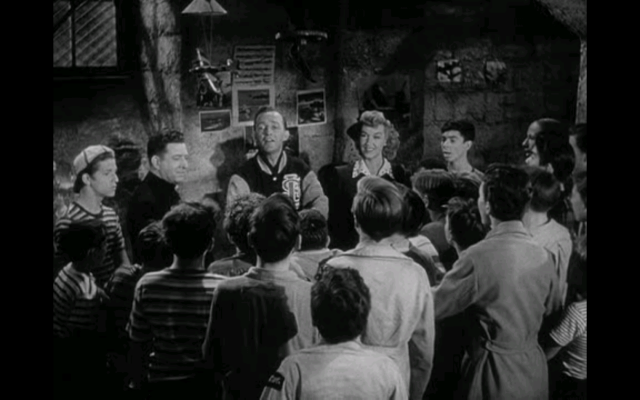Going My Way (1944)
“This young man and I differ; we don’t see eye to eye.”
|
Synopsis: |
|
Genres, Themes, Actors, and Directors:
Response to Peary’s Review: These days, opinions are decidedly mixed on whether Going My Way has stood the test of time. Crosby (the “No. 1 box-office draw” of the time) is certainly charismatic, and sings as nicely as ever, but the meandering storyline — in which “Crosby helps out a young woman (Carol James) who has left home and wants to be a singer, turns the tough neighborhood kids (all of whom say ‘fodder’) into angelic choirboys, looks up his opera-singer friend (Rise Stevens) …, gets money for the church by selling one of his songs, and wins over Fitzgerald” — lacks focus, and feels patently crafted to allow either Crosby and/or Stevens (who’s charming but smiles too much) “natural” opportunities to sing. With that said, if you’re in the mood for a feel-good film with some fine ditties sprinkled throughout (my favorite is Crosby leading the boys in “Swinging on a Star”), then this is certainly worthy viewing. Note: Despite his claim that Going My Way was a “deserved Best Picture winner”, Peary actually gives the award to Double Indemnity in Alternate Oscars, noting that …Indemnity was “more deserving… if only because it has been much more influential.” Redeeming Qualities and Moments:
Must See? Categories
Links: |




One thought on “Going My Way (1944)”
Oscar wins (very much) aside, this meandering bore is not a must.
I won’t even elaborate on the sluggish tone of the piece – except that it’s maddening right from the start.
None of the characters are particularly interesting. A number of them are irritating for one reason or another.
I’m tempted to return to the tone and elaborate. Molasses in January. In the first scene, gentlemen from a savings and loan company are talking with Fitzgerald. The church is in danger of foreclosure because a loan cannot be repaid. Five minutes in, I was on the side of the savings and loan guys. This film basically arrives DOA.
I often post here on films I’ve only seen once – years ago. Sometimes I don’t mind all that much revisiting films I don’t particularly like. Many times I can at least make it through the entire revisit.
Not this time. Not easily, I made it about 40 minutes in – around the time that Crosby rallies the young boys of the town to become the church choir. One of the boys begins slapping another one – repeatedly in the face – to make sure he joins the group. Then Crosby starts choir practice off with ‘Three Blind Mice’…and I was DONE!
Cripes – a genuine soporific.